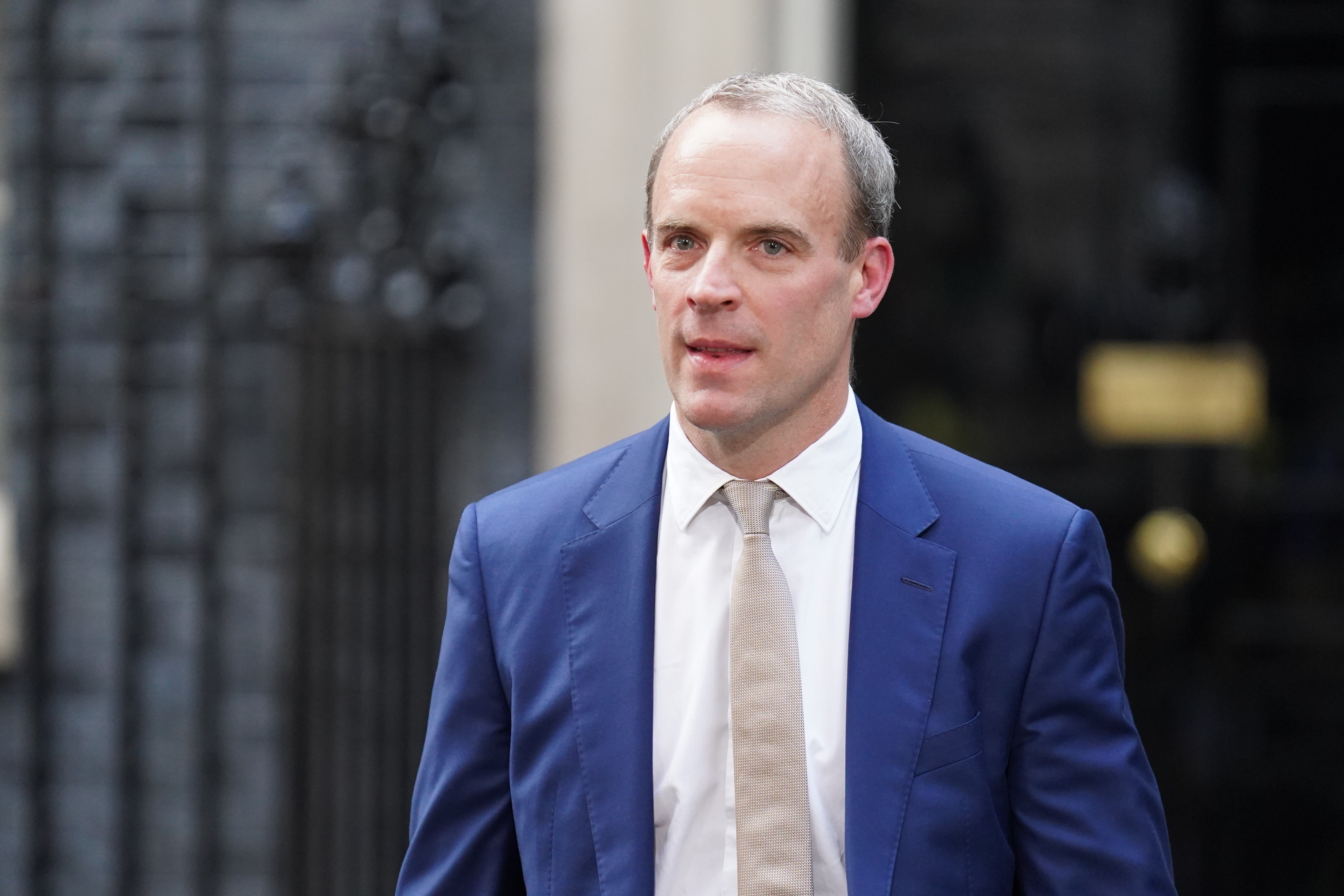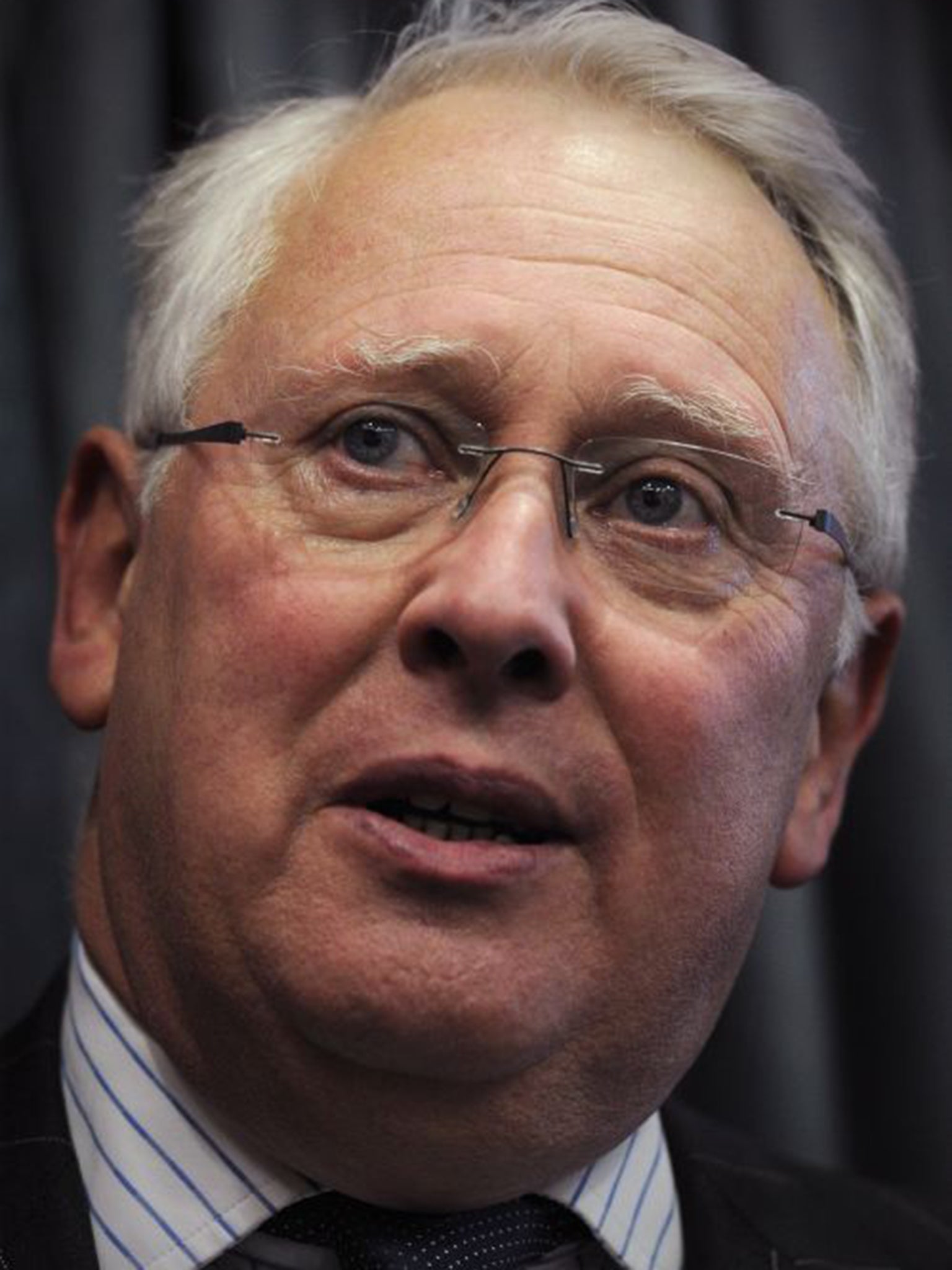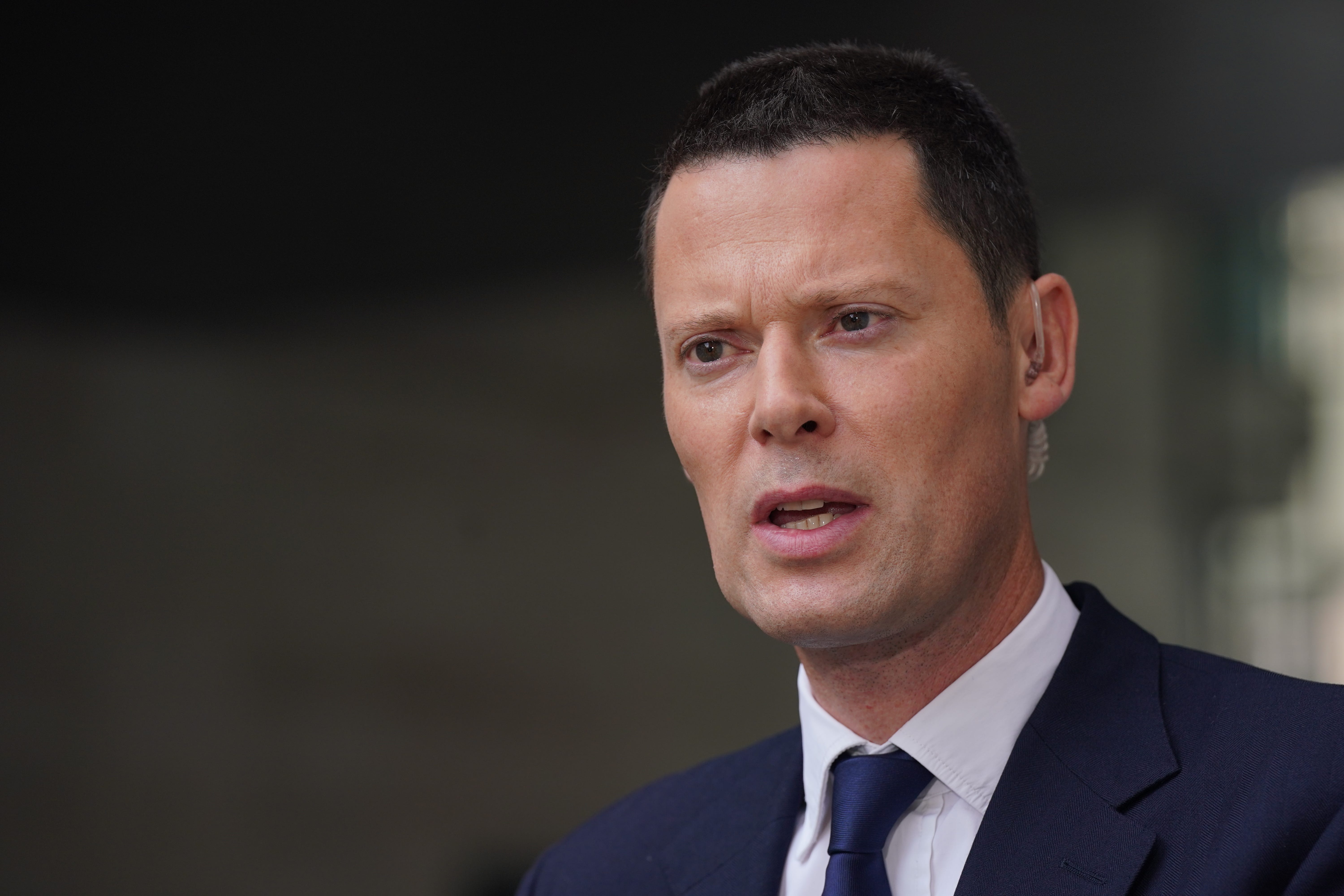Revealed: 16 years in prison for stealing a bike and no hope of release – as 7 trapped in jail kill themselves
Exclusive: Lord David Blunkett called for Alex Chalk to ‘give hope’ to prisoners trapped on IPP sentences as the shocking death toll was revealed
Seven inmates trapped in prison under indefinite jail terms have taken their own lives since the government refused to resentence them, The Independent can reveal.
The prisons watchdog has launched investigations into a string of self-inflicted deaths amid a “worrying rise” in incidents among imprisonment for public protection (IPP) prisoners – with campaigners warning the “hopelessness” associated with the controversial sentences is having tragic consequences.
It comes after former justice secretary Dominic Raab refused cross-party recommendations to resentence IPP prisoners, despite the prison term – a form of indeterminate sentence in which offenders are given a minimum jail term but no maximum – being described as “the single greatest stain on our justice system”.
The sentences were scrapped in 2012, but not retrospectively, leaving almost 3,000 trapped in prison with no clear hope of release – nearly 700 of whom have served more than 10 years longer than the minimum term they were given.
New Labour introduced the sentences in 2005 as part of new legislation to prove they were tough on crime. Anyone convicted with an IPP would have initially committed an offence that was deemed a danger to the public and subsequently committed another of 153 listed crimes, including violent and non-violent offences.
After completing their minimum term tariff, inmates must then apply for release to the Parole Board and meet stringent criteria – including not suffering from mental health problems – to prove that they are no longer a risk to the public.
David Blunkett, who has admitted he regrets introducing the measures as home secretary, told The Independent there needs to be a change in the system that “gives hope” to inmates. “The longer they are in, the longer they are institutionalised, the more their mental health deteriorates. It’s a no-brainer that we need to provide people with that hope.”
Shocking examples of those languishing in prison under the unjust sentence include:
- Wayne Bell, who was jailed for a minimum of two years for taking a bike in 2007. He is still incarcerated after more than 16 years and his family fears he will never be freed
- Thomas White was jailed for a minimum of two years for stealing a mobile phone in 2012, but after more than 11 years in prison, he has never been released
- Aaron Graham, who punched a man in a fight, was given an IPP sentence with a minimum term of two years and 124 days in 2005 but has served almost 20 years, including time spent on remand
Sir Bob Neill, chair of the justice committee which urged the government to resentence all IPP prisoners, described the latest deaths as “tragic and disturbing”, adding it was “possible” some of those lives could have been saved if the government had accepted his recommendation.
Donna Mooney, whose brother died by suicide in 2015 while serving an IPP sentence for stealing a car, said that “without a doubt” the government’s rejection cost lives as prisoners “gave up completely”, leaving grieving families to pick up the pieces.

Ms Mooney, a campaigner with the United Group for Reform of IPP (Ungripp), which is supporting two of the seven recently bereaved families, told The Independent: “We are victims of this sentence, having never committed a crime.”
Next month, it will be 11 years since IPP sentences were abolished in Britain after they were found to be “fundamentally unjust” by the European Court of Human Rights.
Originally designed to protect the public from serious offenders whose crimes did not warrant a life sentence, they were widely overused and often imposed for low-level crimes before they were axed in 2012.
The latest figures show that 2,921 IPP prisoners were still incarcerated at the end of September. Of these, 1,269 have never been released, while 1,652 have been recalled to prison after being caught out by strict 10-year licence conditions.
In a justice select committee report last year, MPs said IPP sentences were “irredeemably flawed” and led to high levels of self-harm.
Although the government accepted or partially accepted eight of the committee’s recommendations, it rejected three, including the key recommendation for inmates trapped under the now-defunct sentence to undergo a resentencing exercise.

In his rejection on 9 February, Mr Raab insisted resentencing would create an unacceptable risk if prisoners were released. Sir Bob branded the decision a “missed opportunity to right a wrong”.
An inmate died at HMP Swaleside just over two weeks later, The Independent has learned, with two further deaths the following month in Coldingley and Bristol.
A prisoner died at HMP Stocken in May, while another inmate died at Bristol in July. The PPO is investigating a further two self-inflicted deaths at HMPs Dovegate and Humber last month.
One family member described the situation as the “biggest injustice that the country has seen since Hillsborough”. Clara White, whose brother Thomas has served more than 11 years for stealing a phone, revealed he has developed schizophrenia while in jail. A psychiatric assessment found his deteriorating mental health was caused by the hopelessness of his IPP sentence.
Wayne Bell’s mental health has also crumbled after he was jailed in 2007, aged 17, for stealing a bike. He spent several years in a secure hospital after he was found catatonic “like skin and bones” in his cell, before being returned to prison. “We are just waiting for that call to say Wayne is gone now,” his sister Alana said. “It’s destroyed him.”
Cherrie Nichol’s brother Aaron Graham has been in jail for almost two decades, including time on remand, after he was put under an IPP for grievous bodily harm for leaving a man with a fractured cheekbone in a fight. Cherrie told The Independent: “It has robbed him of his life – the chance to have a family and a career. It’s robbed him of everything he’s got.”

Ms Mooney, whose brother had served six years in jail when he died despite a minimum four-year tariff, called for justice secretary Alex Chalk to intervene.
She said: “There is not a doubt in my mind that [resentencing] would have saved lives. Until something significant changes, I think this will keep happening. And that’s horrendous because the government are just leaving people to die.”
She claimed that sorting the IPP issue could “empty three prisons” amid a prison capacity crisis. “This is an extreme situation and it’s only going to continue like this until something is changed. These people need to be given some hope. Resentencing is the safest and fairest route. It is not opening the gates and letting everybody out.”
The prisons and probation ombudsman Adrian Usher warned of a “worrying rise” in self-inflicted IPP deaths in September. In 2022, nine people serving IPP sentences took their own lives – the highest annual figure on record. With seven deaths recorded this year in the eight-month period since February, campaigners fear this year the total could be even higher.

Mr Usher said the sentences should be considered a risk factor for prisoners, noting that of 19 self-inflicted IPP deaths since 2019, only five inmates were being monitored by specialist teams for those at risk of suicide and self-harm.
Responding to the latest deaths, Mr Usher told The Independent: “We have continued to see self-inflicted deaths of IPP prisoners this year, and I believe more needs to be done to ensure these high levels of self-inflicted deaths do not continue.”
Lord Blunkett implored Mr Chalk at a recent Lords select committee to “put right something I got wrong”.
During the meeting, Mr Chalk said he was considering curtailing the 10-year licence period to five years, but spoke of his reluctance to release inmates who might go on to commit “appalling crimes”.
Lord Blunkett told The Independent he had been helping families whose loved ones have been on suicide watch under this sentence but admitted he is “pessimistic” over whether the government will give so much as a “nod” to Sir Bob’s amendment to the Victims and Prisoners Bill.

Mark Day, deputy director of the Prison Reform Trust, said the “hopelessness and despair” associated with the IPP sentence can have “tragic consequences”.
He added: “Ministers have a responsibility to address the continued injustice faced by people on IPPs and their loved ones. Alex Chalk needs to come forward with workable proposals to help bring the sentence to a definitive end.”
Andrea Coomber, chief executive of the Howard League for Penal Reform, added: “Each self-inflicted death of a person serving an IPP sentence is a shameful indictment of our justice system, and these figures underline the need for ministers to act decisively to end the suffering of those in prison and their families.”
A Ministry of Justice spokesperson said the department is “carefully considering” what can be done to address the plight of IPP inmates.
They added: “We abolished IPP sentences in 2012 and have already reduced the number of unreleased IPP prisoners by three-quarters. We are also helping those still in custody to progress towards release, including improving access to rehabilitation programmes and mental health support.
“While public protection will always be our priority, we are carefully considering what additional measures might be put in place.”
If you are experiencing feelings of distress, or are struggling to cope, you can speak to the Samaritans, in confidence, on 116 123 (UK and ROI), email jo@samaritans.org, or visit the Samaritans website to find details of your nearest branch.
If you are based in the USA, and you or someone you know needs mental health assistance right now, call the National Suicide Prevention Helpline on 1-800-273-TALK (8255). This is a free, confidential crisis hotline that is available to everyone 24 hours a day, seven days a week.
If you are in another country, you can go to www.befrienders.org to find a helpline near you.
Bookmark popover
Removed from bookmarks